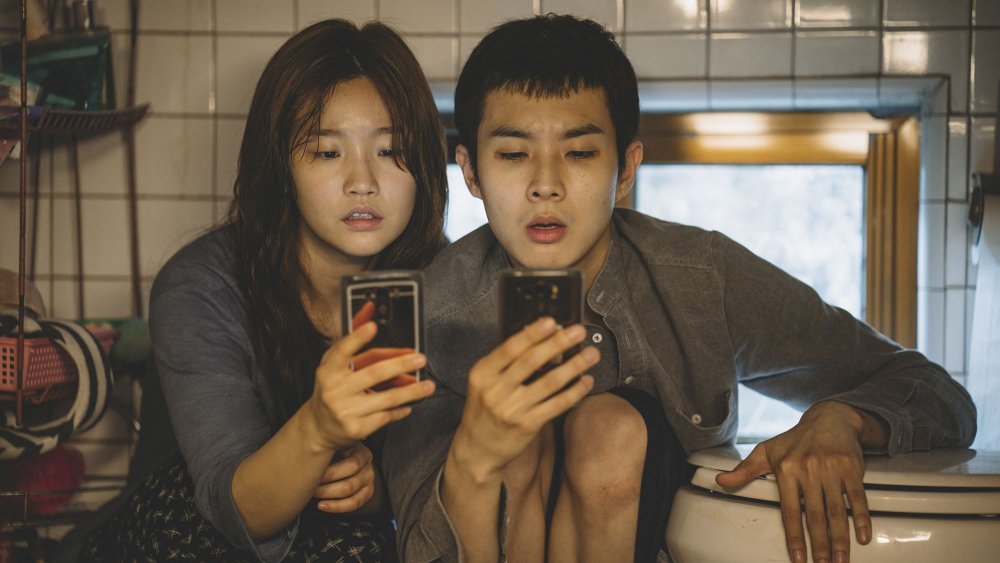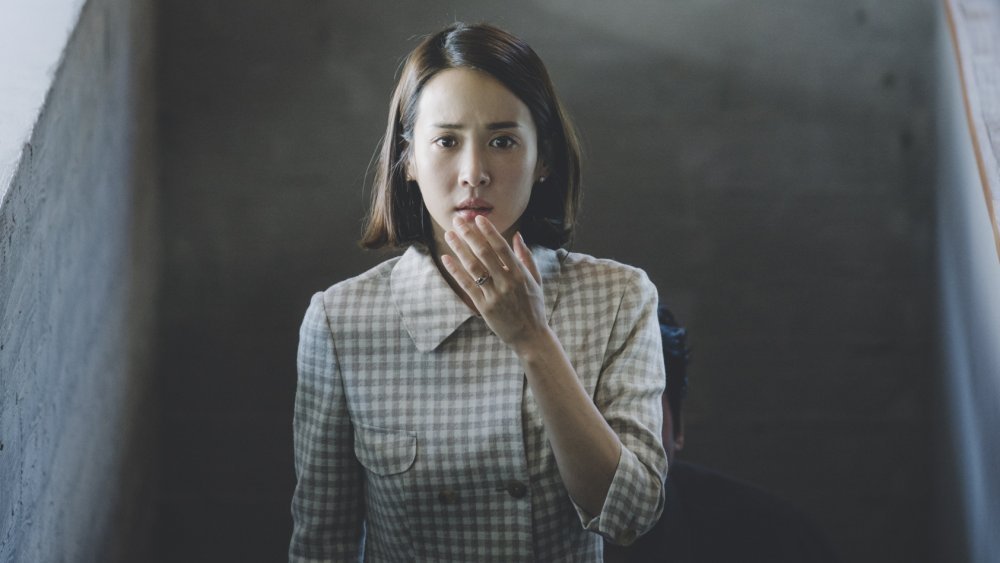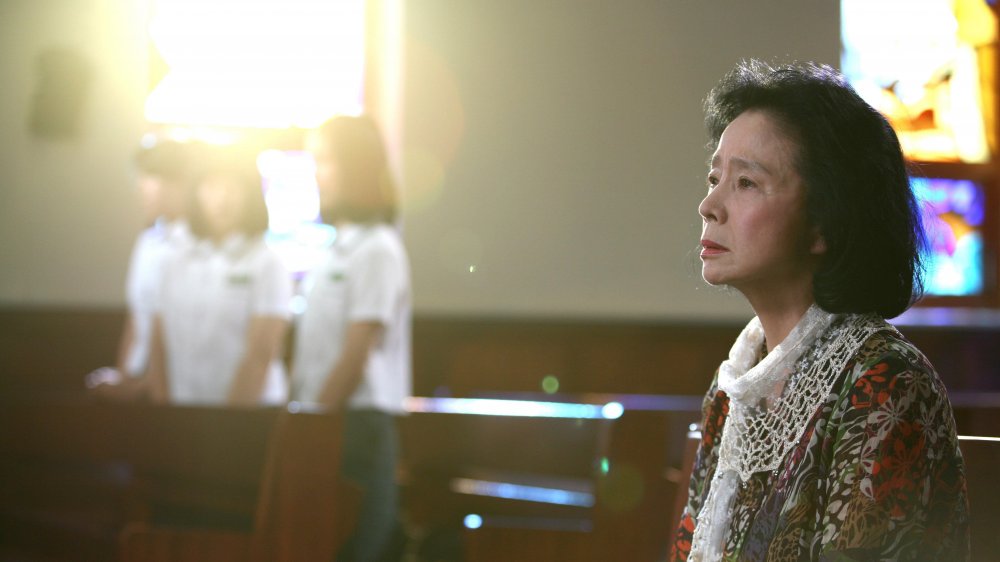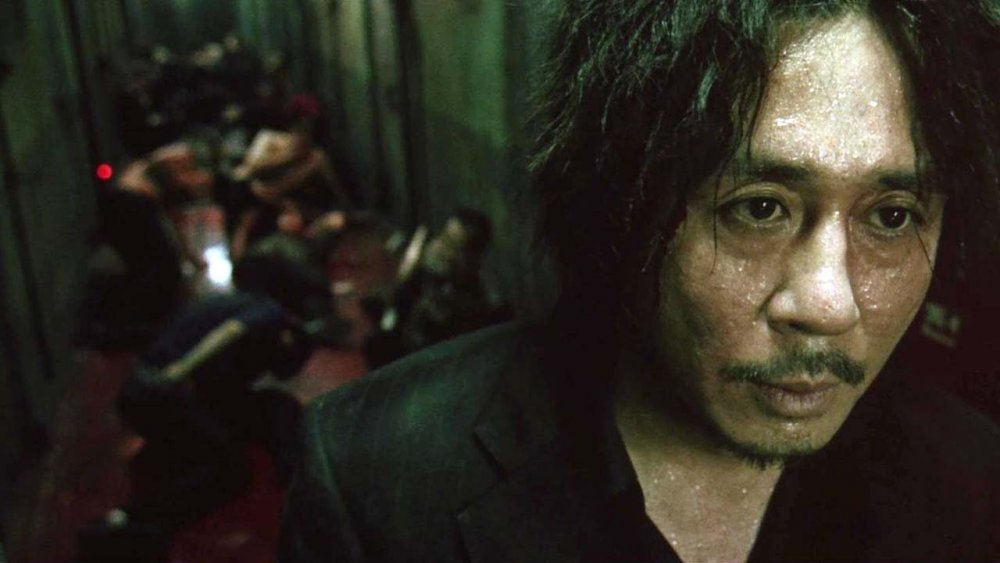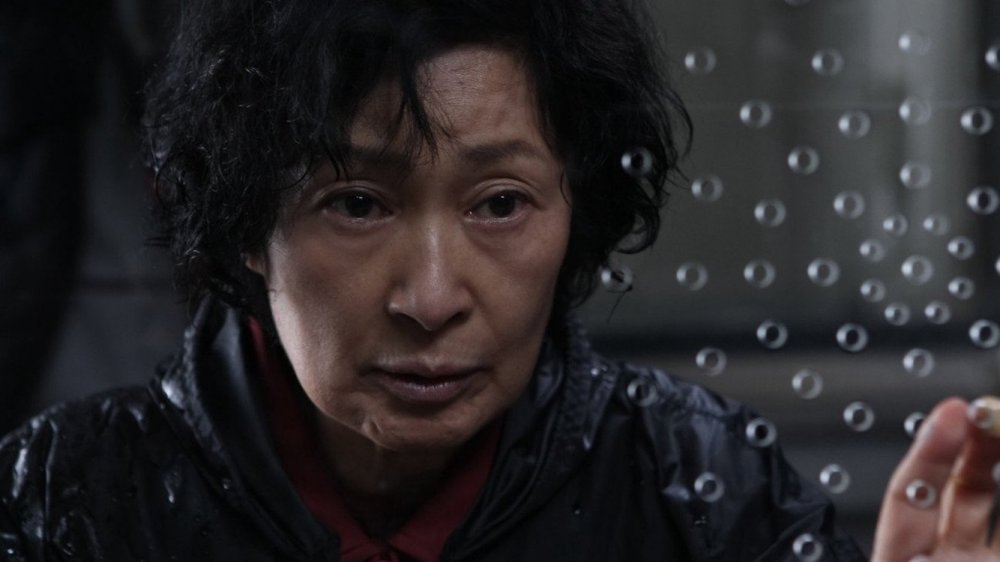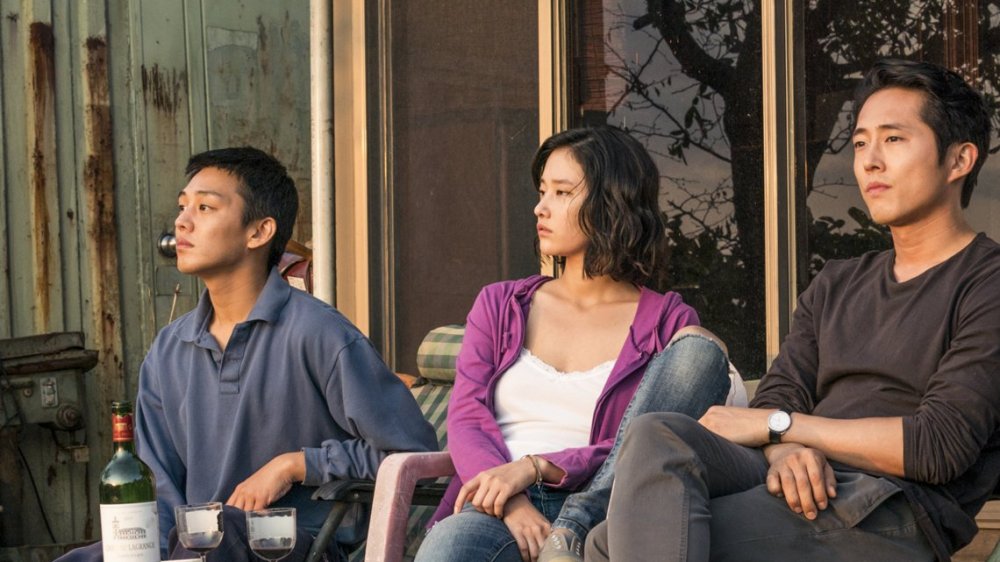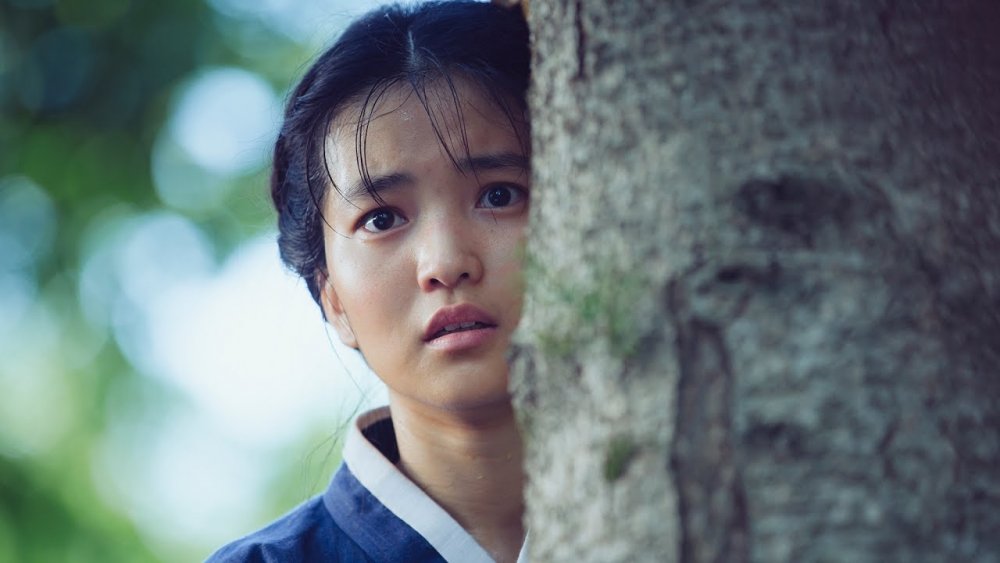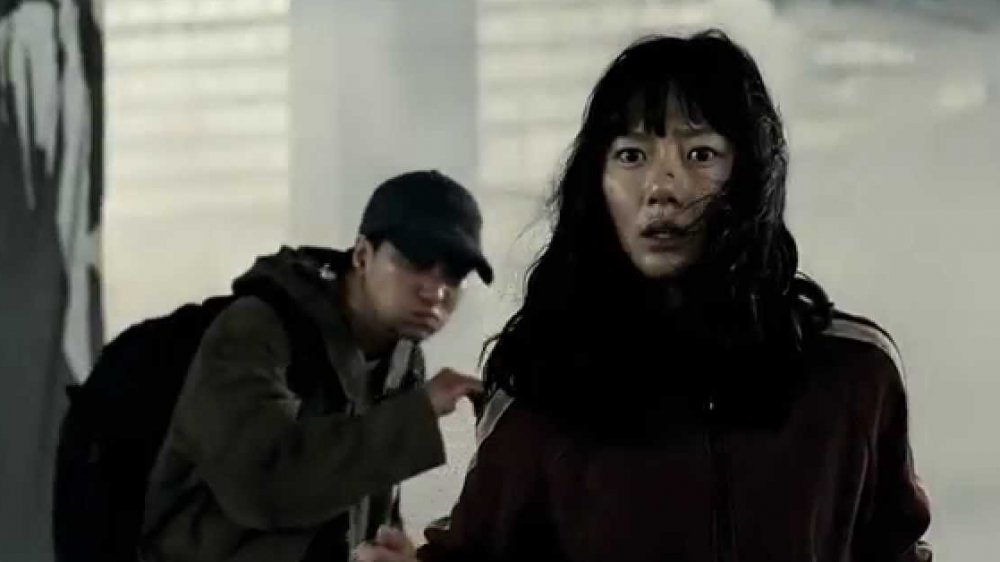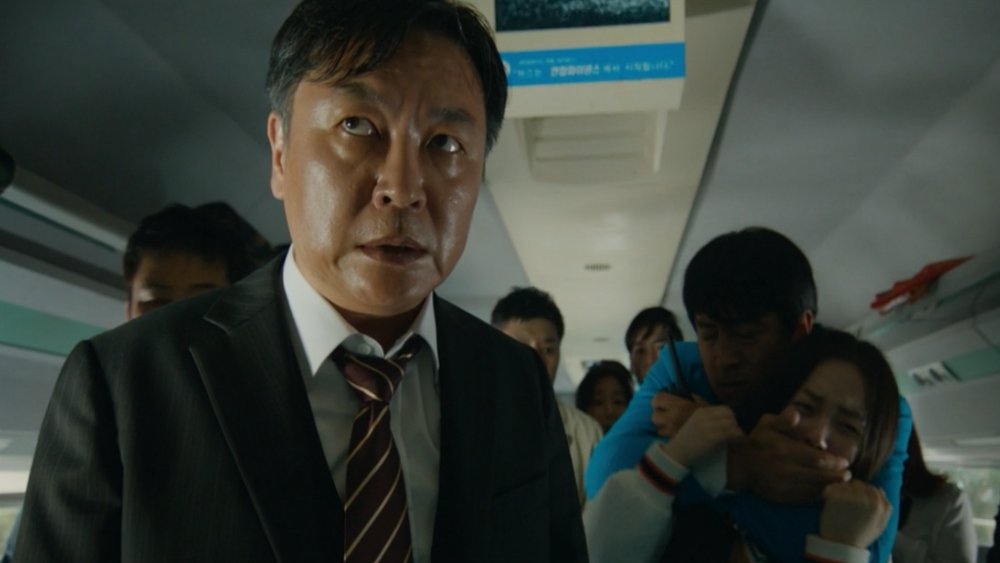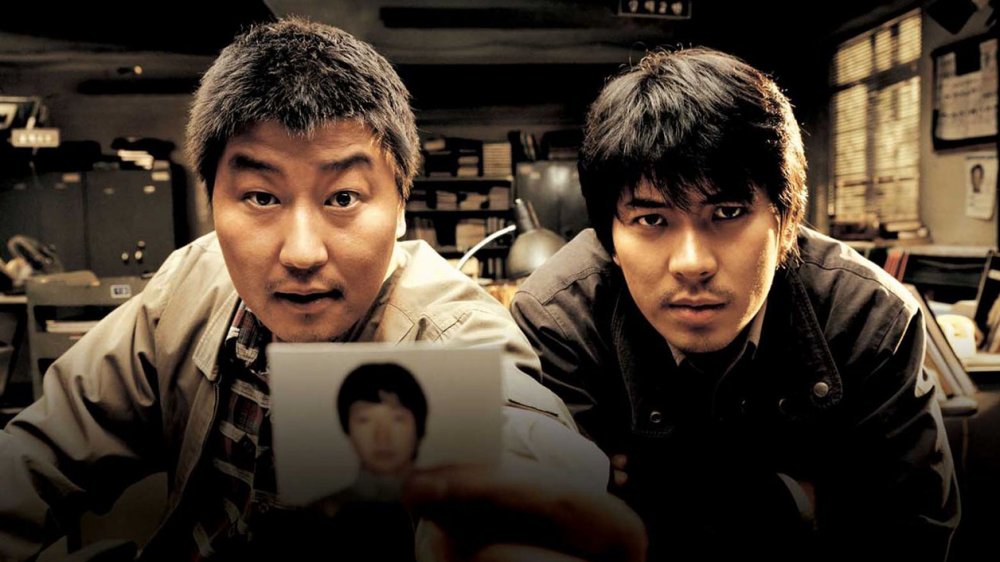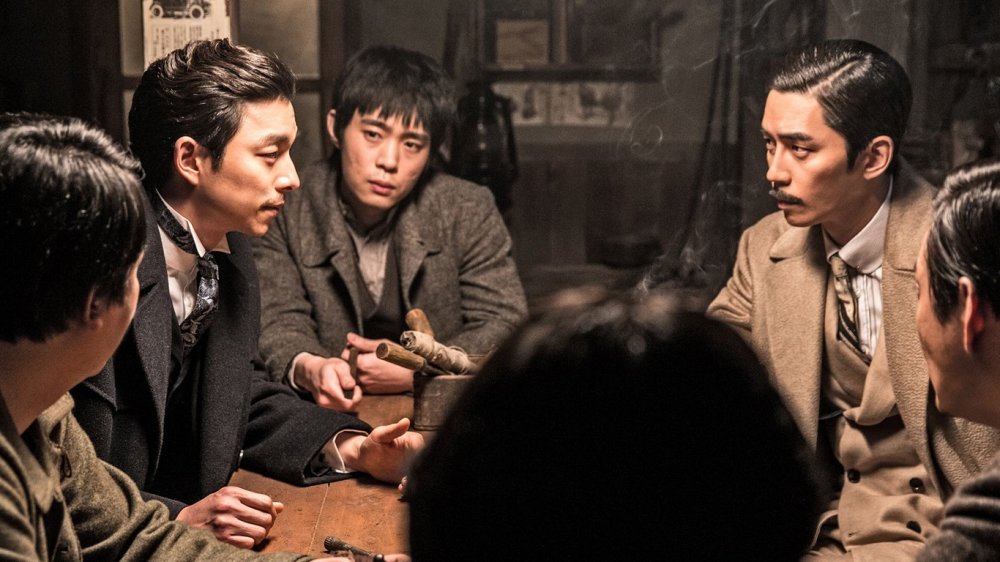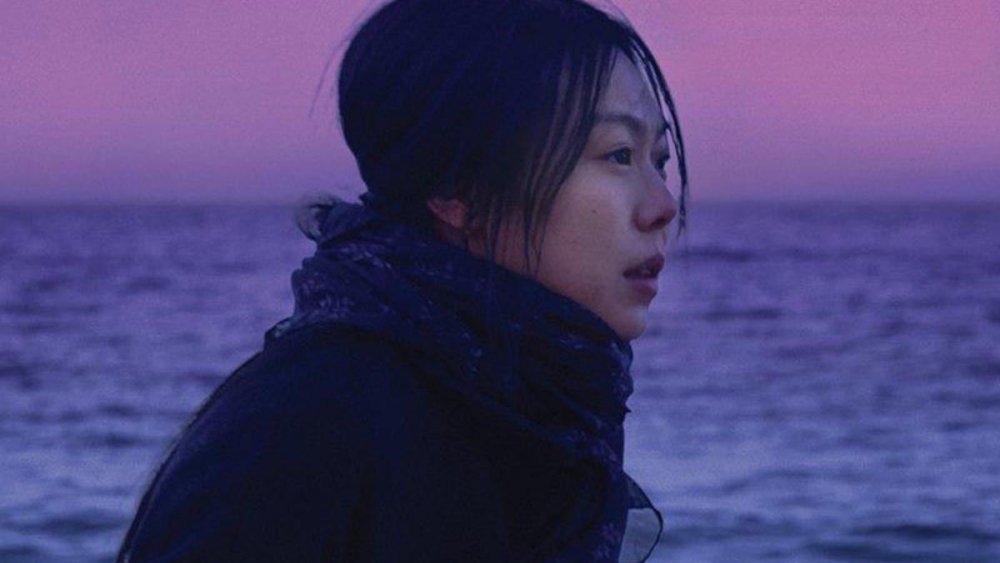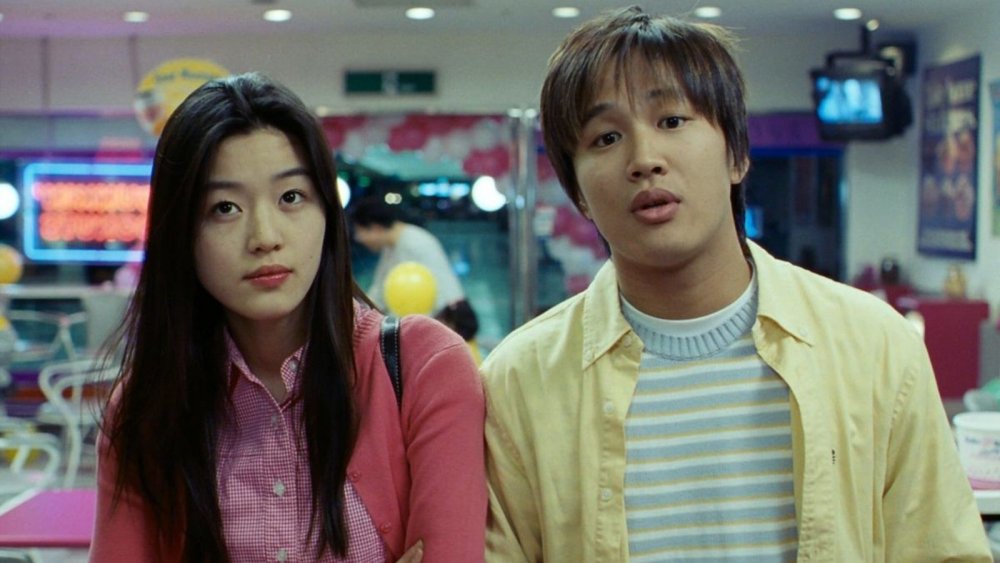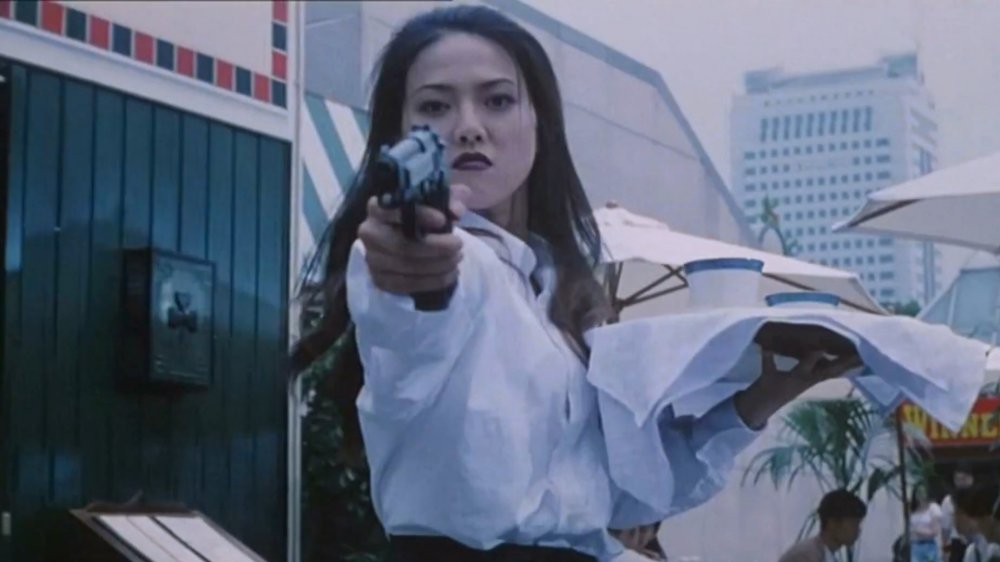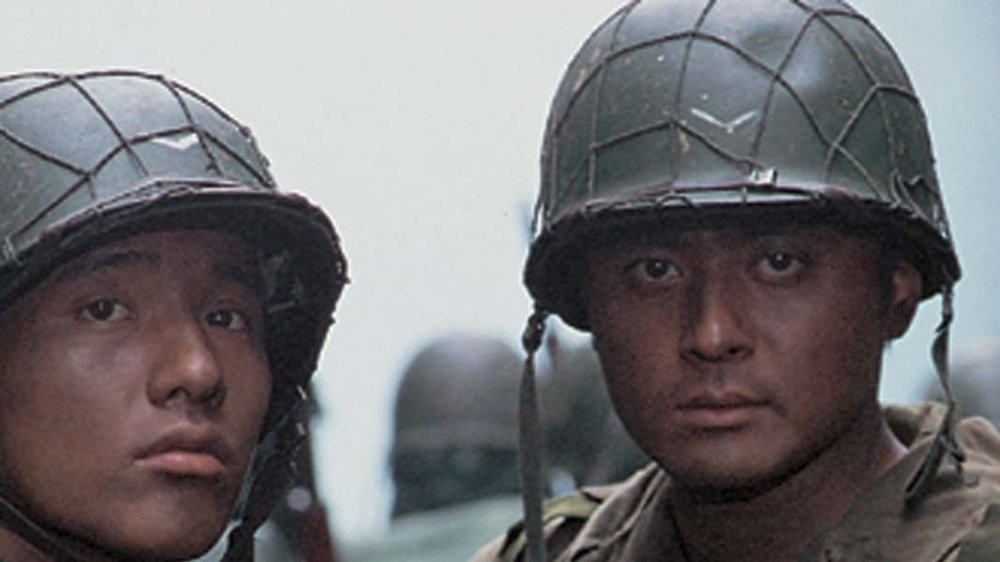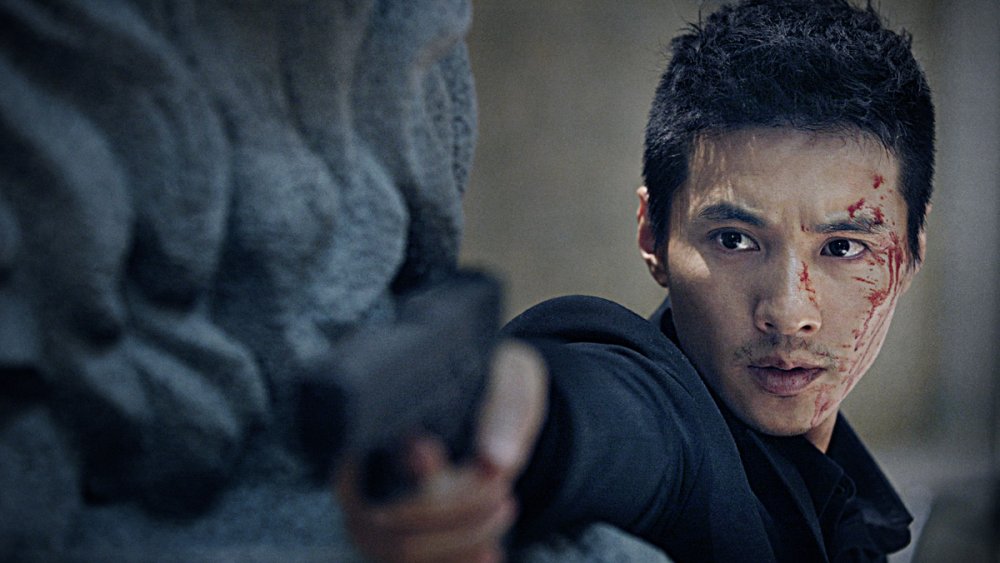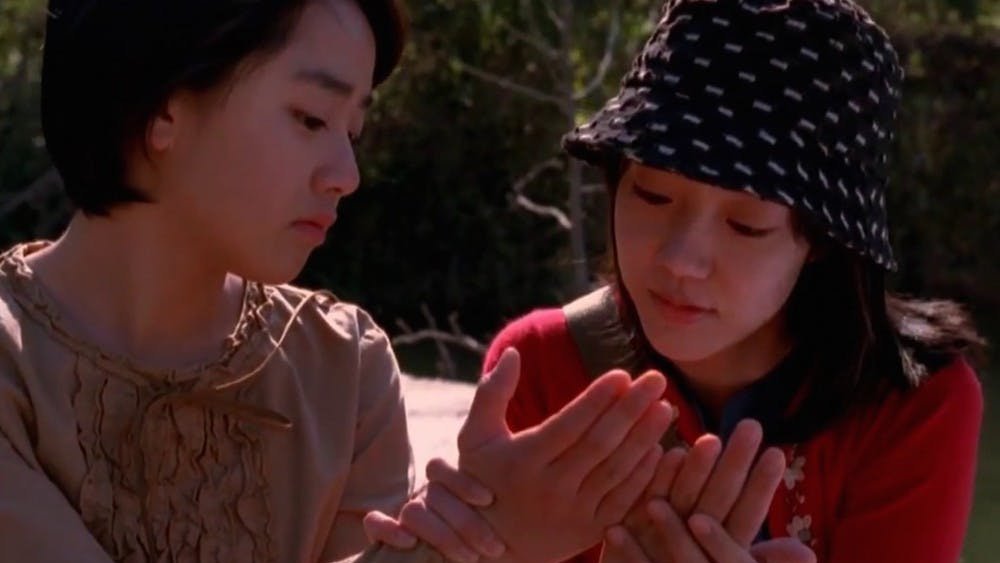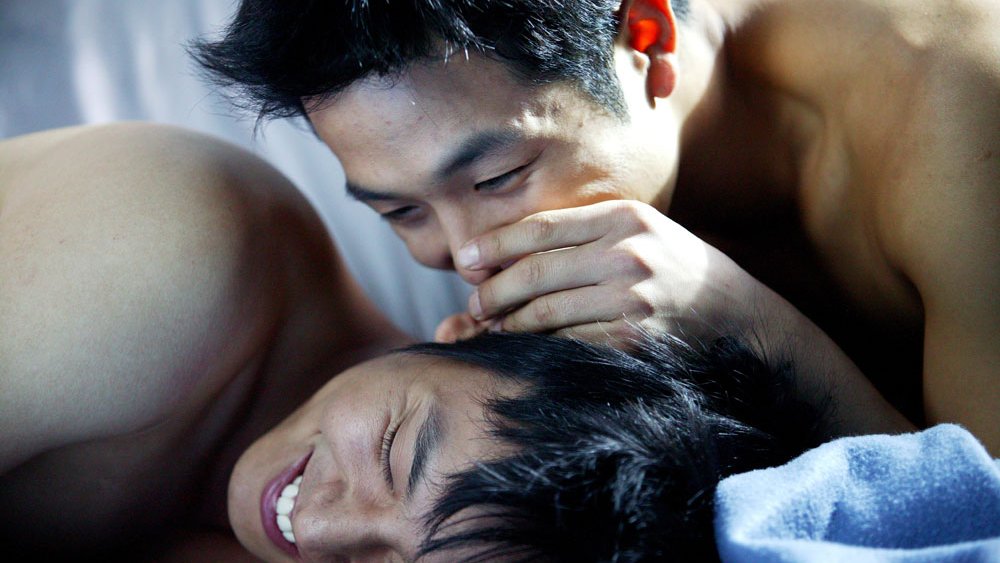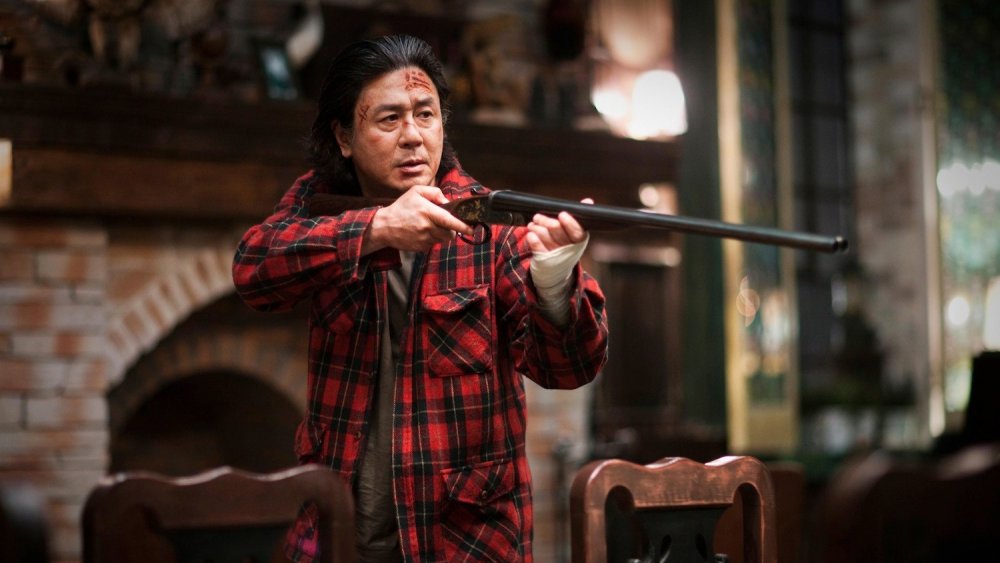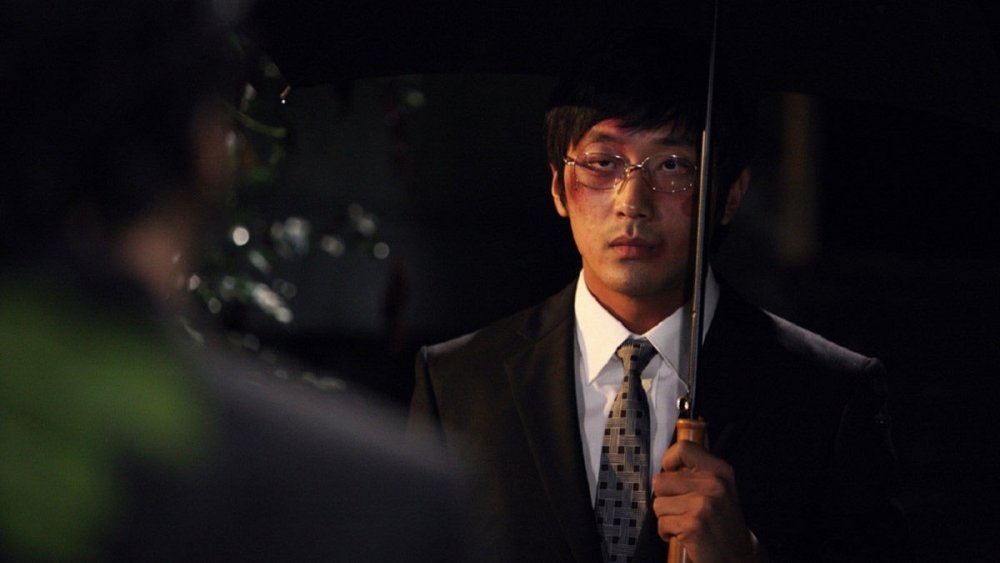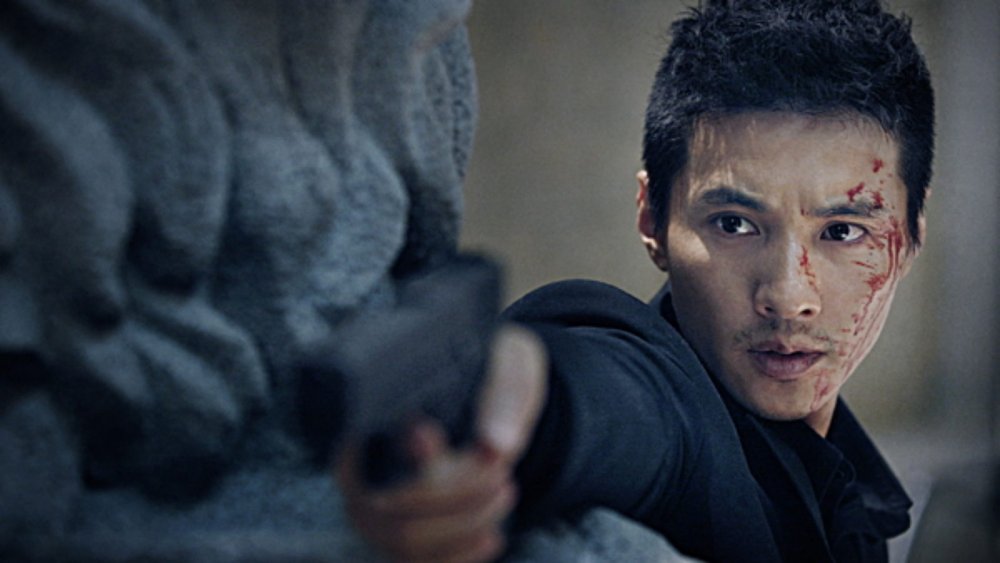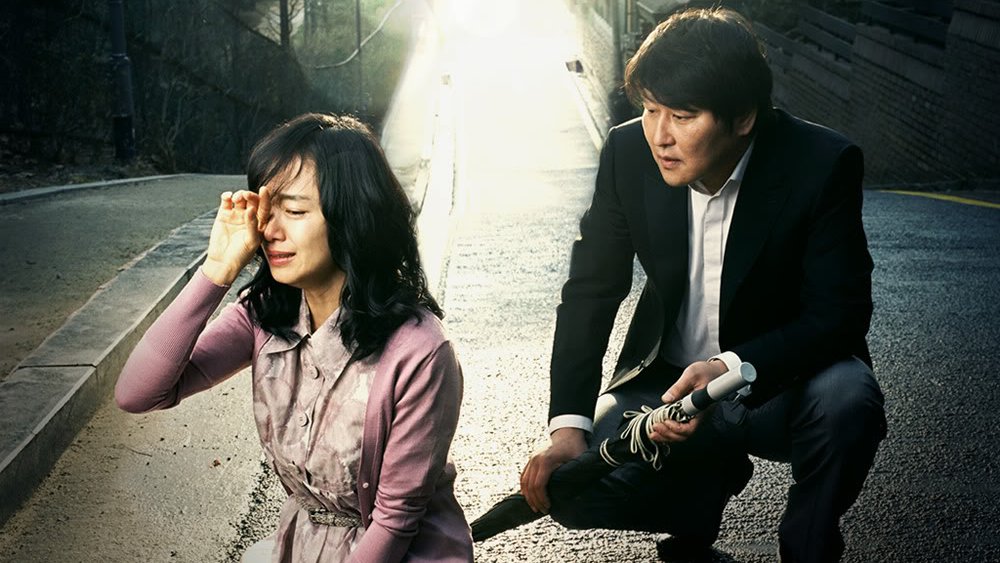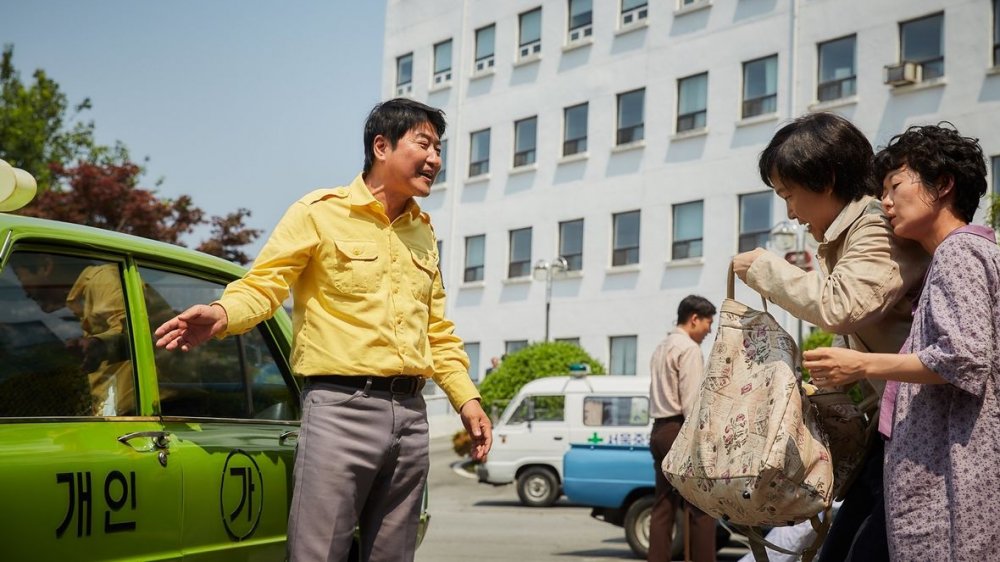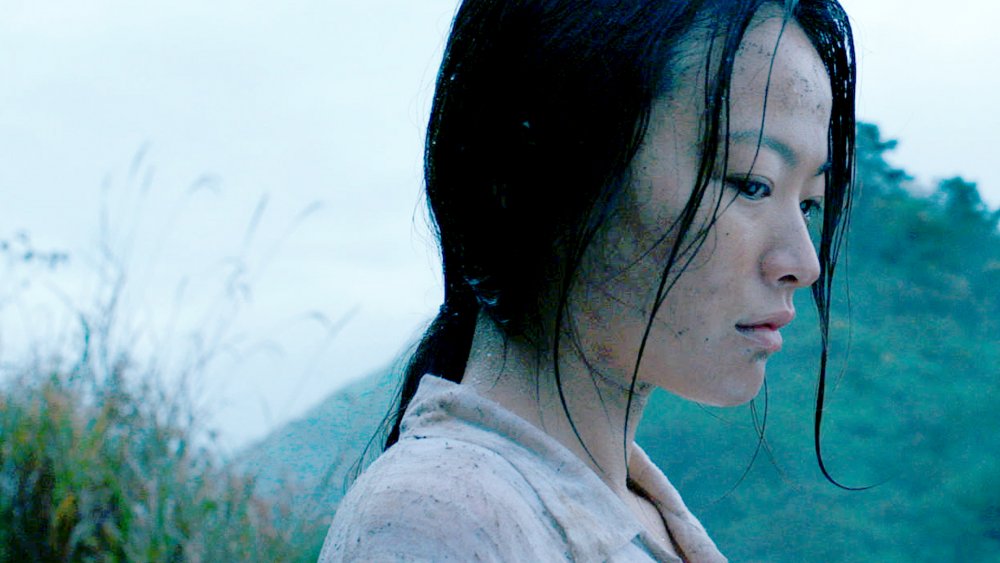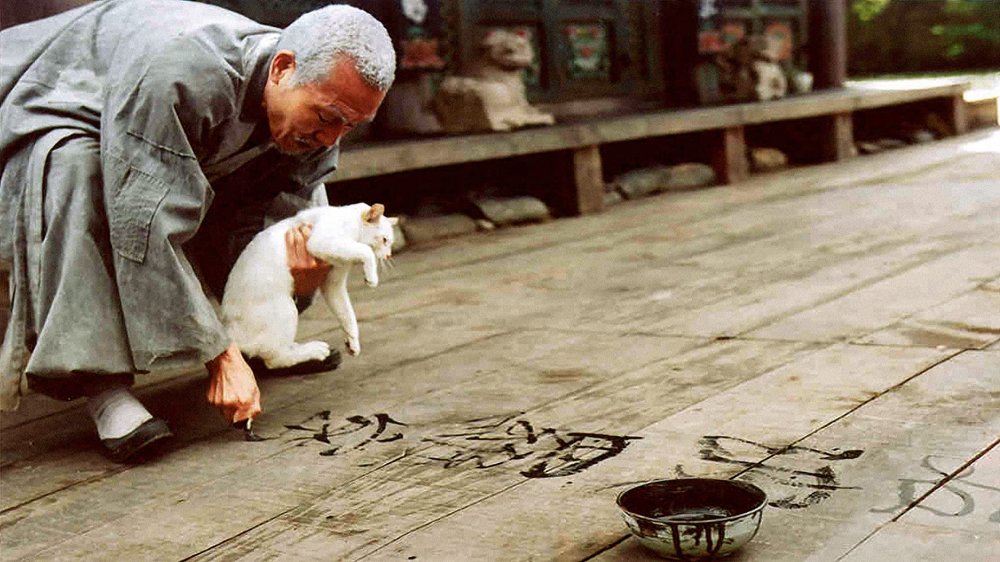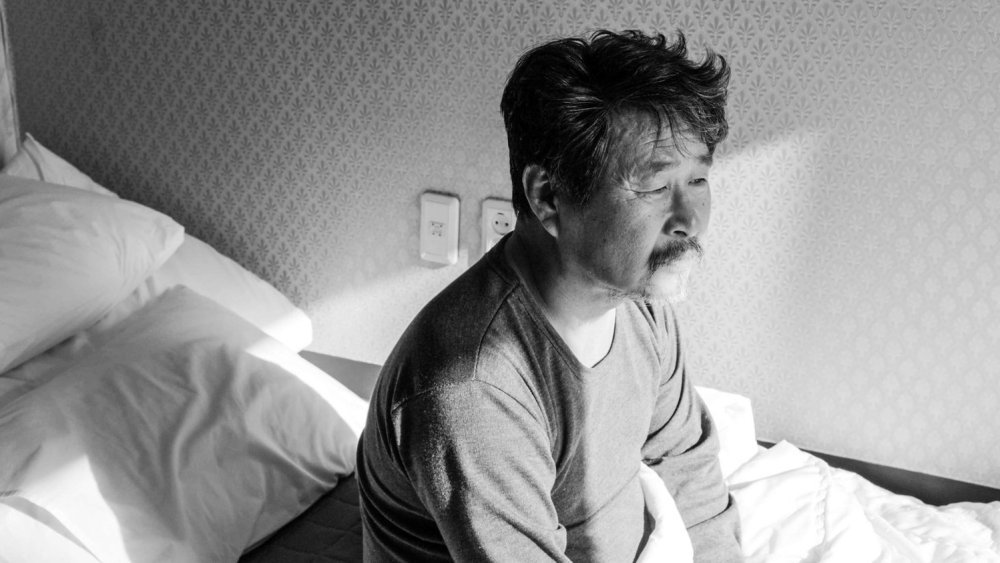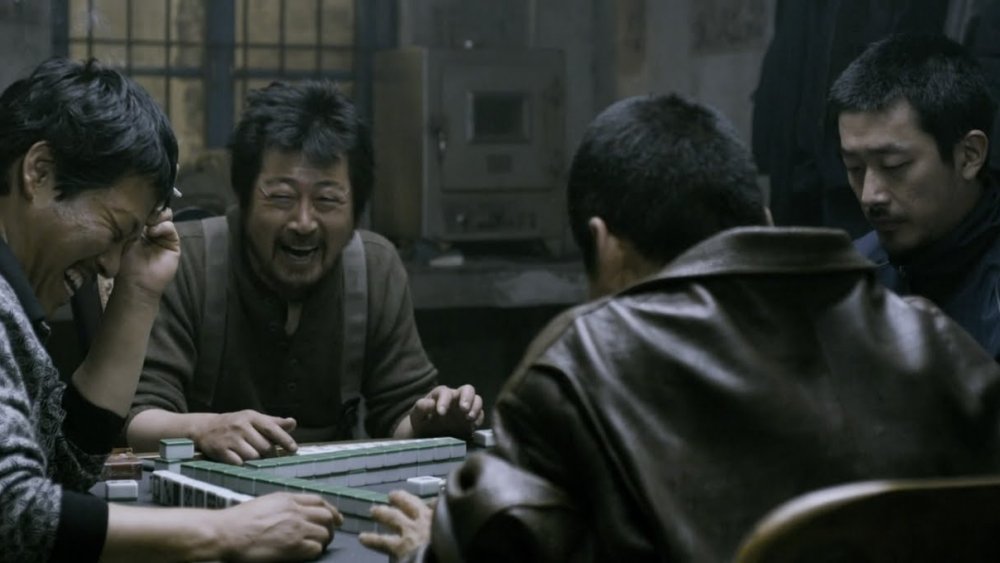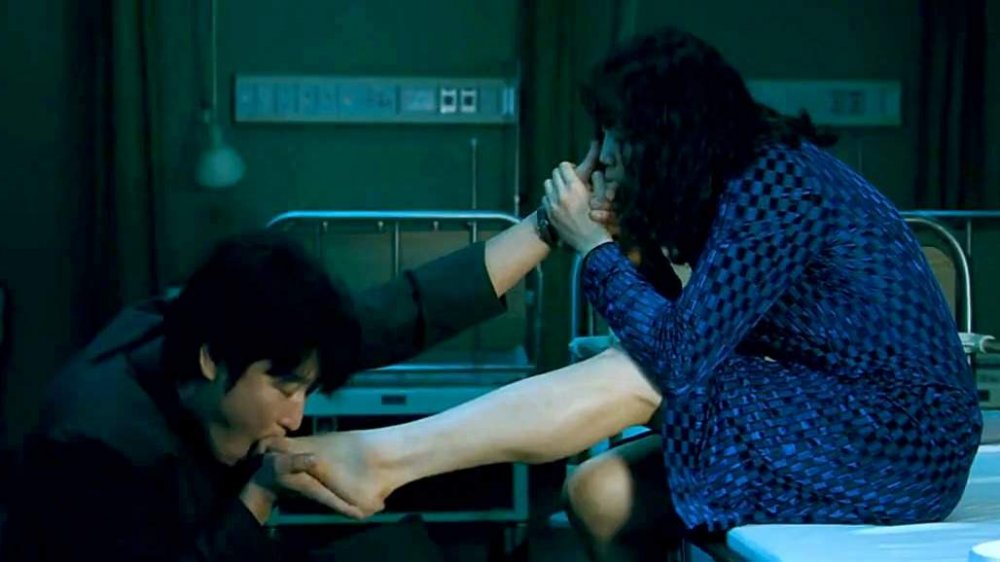The Best South Korean Movies You Need To Watch
On February 9, 2020, the Academy Awards made history by awarding Best Picture, the crown jewel of the ceremony, to Parasite, marking the first time a non-English language film took home the evening's top honor. Directed by South Korean director Bong Joon Ho, Parasite triumphed over contenders like 1917, Joker, and The Irishman while winning Best Director and Best Original Screenplay, reaffirming that international cinema can be a big part of the conversation in a real way.
International cinema definitely shouldn't be overlooked, and from France to Mexico to Italy, countries around the world continually offer excellent films that any movie lover can enjoy, language barriers notwithstanding. South Korea actually has one of the busiest film industries in the world, and if you're curious about the rest of the nation's offerings after Parasite, there's plenty more where that came from.
Parasite
A list of outstanding South Korean films wouldn't be complete without mentioning Parasite. Bong Joon Ho's capitalist critique and modern masterpiece is one of the most original and exciting films to hit any theater worldwide in recent memory, so it's no wonder that it surged ahead of a crowded field to take home the coveted Best Picture trophy.
The story of the Kim family — who are played by veteran actor and frequent Bong collaborator Song Kang Ho alongside Choi Woo Shik, Park So Dam, Chang Hyae Jin as his grown children and wife — Parasite casts a stark light on financial inequality, especially when it comes to the struggling Kim clan. When Ki-woo (Shik) gets the chance to work for the wealthy Park family (played by Lee Sun Kyun and Cho Yeo Jeong), the family concocts a plan that could help them trade squalor for luxury.
The twists and turns of Parasite are way too good to spoil here, so if you haven't caught this film yet, we won't spoil it for you. In any case, Parasite, which began its awards run by winning the Palme d'or at Cannes and closed it out by winning Best Picture, certainly earned its spot on the list of best South Korean films.
Poetry
One of South Korea's most highly rated films is also its most touching and heartfelt; specifically Poetry, which was released in 2011. Written and directed by Lee Chang-dong, this family drama centers on Yang Mi-ja — played by storied South Korean actress Yoon Jeong-hee, who came out of retirement specifically for the role — as a woman in her 60s who finds herself afflicted with Alzheimer's disease. As she struggles to deal with her illness, as well as her difficult grandson, Mi-ja finds herself using poetry to help her make sense of her constantly changing world.
From there, the story takes several turns, including an upsetting plot about Mi-ja's troubled grandson Wook (Lee David), who may be responsible for an attack on a girl in his class. Ultimately, Mi-ja handles the situation and finds peace, despite her faltering memory. Upon its release, Poetry was entered into the 2010 Cannes Film Festival and won an award for its screenplay, proving that small, intimate stories resonate regardless of national origin.
Oldboy
Parasite made major waves for South Korean cinema on the international stage, but for cinephiles across the world, 2003's Oldboy was a classic long before. Directed by Park Chan-wook and based on a comic book of the same name by Garon Tsuchiya and Nobuaki Minegishi, what many viewers might not know about Oldboy is that it's also part of the "Vengeance Trilogy," right in the middle of Sympathy for Mr. Vengeance and Lady Vengeance.
The story of Oh Dae-su (Choi Min-sik), a man imprisoned for 15 years before escaping prison only to be drugged and abducted, Oldboy is packed full of twisting, violent turns, especially as Dae-su tries to figure out the identity of his captor, as well as navigate a new romance and escape a group that's still hunting him down. The final twist is as unsettling as anything you've ever seen on the big screen, but thanks to careful direction by Park, Oldboy still stays away from gratuitous shock value and violence to create a gripping tale of vengeance and bloodshed. The film inspired a Spike Lee-helmed remake in 2013, though that version was ultimately much less popular than its predecessor.
Mother (Madeo)
Bong Joon Ho broke into the American market with films like Snowpiercer and Parasite, but you shouldn't overlook some of his earlier films, like 2010's Mother (titled Madeo in South Korea).
Korean actress Kim Hye-ja stars as Mother, who sells acupuncture to people in her small town (even though she doesn't have a license) and is extraordinarily protective of her only son, Do-joon (Won Bin), who suffers from severe mental disabilities and is prone to violence if provoked. After a series of unfortunate events, Do-joon is accused of murdering a young girl, and Mother must find a way to clear his name and acquit him of what she believes are wrongful charges. However, there's still a lot about Do-joon that Mother has yet to learn, which pushes her to the breaking point as she keeps trying to protect him.
Mother premiered at several film festivals — including Cannes — earning critical acclaim, and initially received a limited release in the U.S., later netting a wider release as a part of a retrospective on Bong's work in 2015. It performed extraordinarily well in South Korea, becoming one of the country's highest-earning films.
Burning (Beoning)
Based on "Barn Burning," a short story by prolific and popular writer Haruki Murakami, Burning, or Beoning, was released in 2018 to considerable acclaim and attention across the globe. Directed and co-written by Lee Chang-dong, the film tells the story of Lee Jong-su (Yoo Ah-in), a young novelist who reconnects with a woman from his past, Shin Hae-mi (Jeon Jong-seo), who asks him to feed her cat and watch her home while she goes on a trip to Africa. Their relationship grows complicated, and when she returns from Africa with a new boyfriend named Ben (The Walking Dead's Steven Yeun), everything gets a lot stranger and more complex for Jong-su, Hae-mi, and Ben.
Critics across the world praised Burning for its intricate plot and slow build. In 2018, the film was shortlisted for consideration at the 91st Academy Awards, and though it didn't make the cut, it became the first ever South Korean film to ever be considered by the Academy.
The Handmaiden
Inspired by Sarah Waters' novel Fingersmith, Park Chan-wook's 2016 film The Handmaiden changes the original source's setting from Victorian England to Korea when it was under Japanese control. Told over three parts, the film focuses on Lady Hideko (Kim Min-hee), a rich heiress targeted by a con man, Fujiwara (Ha Jung-woo). Hellbent on marrying her to steal her fortune, he hires a pickpocket, Sook-hee (Kim Tae-ri), to infiltrate her life, but it turns out that Hideko knows a lot more than she lets on, leading Sook-hee on a wild ride as he learns more disturbing details about her past. The Handmaiden is definitely a thriller worth the journey.
Praised for its careful direction, stunning visuals, and complex plot, The Handmaiden performed extraordinarily well with critics and topped several best-of lists for 2016, later winning Best Film Not in the English Language at the 71st Annual BAFTAs.
The Host
Before Snowpiercer and Parasite, Bong Joon Ho's biggest hit internationally was The Host, a 2006 supernatural thriller that kept audiences on the edge of their seats. Inspired by a local news piece about a deformed fish found in a Korean river, Bong crafted a narrative focused around a slow but good-hearted man named Park Gang-du (played by frequent Bong collaborator Song Kang-ho) who runs a modest food stand by the Han River and experiences a horrifying, otherworldly incident on an otherwise uneventful day. One day during work, an enormous monster emerges from the river, and though Gang-du tries to save his daughter Hyun-seo (Go Ah-sung) from the monstrosity, he grabs the wrong girl, and his daughter is taken. Alongside the rest of his family, he must try and rescue his daughter and figure out exactly what this monster even is.
The film, which explores a worst-case scenario of government interference with natural resources, received overwhelming acclaim, thanks to Bong's now signature combination of satire, dark comedy and horror. Clearly, this director had much more to offer, but The Host was certainly an excellent indicator of great projects to come.
Train to Busan
Zombie films have long been popular around the world, and South Korea is no exception, as proven by the success of 2016's Train to Busan. Directed by Yeon Sang-ho, the movie takes place almost entirely on a train, where a routine trip is interrupted by news of a horrifying zombie apocalypse that threatens humanity. The train is infected as well thanks to a rogue passenger, and suddenly, the entire population of the train is at risk as they wait for word from their loved ones on the outside. The train eventually stops at a station, and the passengers must find another way to Busan.
Clearly, this thrilling film captured the imagination and attention of filmgoers in South Korea; after its release, it became the first Korean film of 2016 to crack 10 million moviegoers. Thanks to its simple premise and developed, relatable characters, it also attracted worldwide critical praise, marking yet another victory for South Korean cinema.
Memories of Murder
Long before Parasite, Bong Joon Ho's first big critical splash came with 2003's Memories of Murder, a Se7en-style saga based on a real string of serial murders in South Korea throughout the late 1980s and early 1990s. Bong tells the story through two detectives — Park (Song Kang-ho) and Seo (Kim Sang-kyung) — who must find the person responsible for brutal sexual crimes and murders. Despite their very different methods, Park and Seo have to work together; unfortunately, their hard work takes several disturbing twists and turns that ultimately offer up few conclusions.
With only his second film, Bong caught the attention of directors like Quentin Tarantino — a fact Bong acknowledged during his emotional acceptance speech for the Best Director statue at the 2020 Oscars — and earned international acclaim as well as adoration within South Korea, putting him firmly on the map as a filmmaker to watch.
The Age of Shadows
In 2016, director Kim Jee-woon blew international audiences away with The Age of Shadows, an action thriller about government resistance and betrayal. The story focuses on powerful Korean police captain Lee Jung-chool (Song Kang-ho), who is charged with reporting members of the resistance to the Japanese government (which controlled South Korea during the early 20th century); as the film goes on, he's unexpectedly shaken by the death of one of his classmates, who led part of the resistance. Even though he's sold out allies before, the resistance tries to take this opportunity to bring Jung-chool back to their cause, resulting in a push and pull between Jung-chool and his former friends.
The first-ever South Korean production from Warner Bros., The Age of Shadows proved a resounding success, performing incredibly well at the South Korean box office and winning over critics and audiences across the globe. Clearly, the studio's investment paid off, opening the door for more Korean dramas to be distributed around the world.
On The Beach at Night Alone
Sometimes, the simplest stories are the most effective, which is perfectly exemplified by the 2017 South Korean film On the Beach at Night Alone. Directed, written, and produced by prolific filmmaker Hong Sang-soo — who has made over 25 films in South Korea — this gripping narrative is about, well, a woman on the beach at night alone. Young-hee (Kim Min-hee), a beautiful young actress, takes to the beach by herself one evening to muse over her difficult relationship with a married man. As she wonders if he misses her as much as she misses him, Hong explores themes of love, loss, and betrayal.
On the Beach at Night Alone was praised by critics as a departure from Hong's style that still retained his "singular sensibilities," resulting in one of the director's most personal and gorgeous projects.
My Sassy Girl
One of South Korea's most popular comedies, 2001's My Sassy Girl is based on a real set of blog posts by an aggrieved boyfriend about his beautiful but troubled girlfriend. Jun Ji-hyun stars as "The Girl," who meets her eventual boyfriend Gyeon-woo (Cha Tae-hyun) when he saves her from drunkenly falling in front of a train. As it turns out, she has a complicated and rather tragic romantic past, and throughout the film, she keeps Gyeon-woo on his toes constantly, to put it lightly. The two eventually figure out a way to make their relationship work, despite every possible hurdle being thrown in their path — and since this is a romantic comedy, those hurdles often turn out to be pretty amusing.
My Sassy Girl remains one of the country's most beloved films, performing well with critics and kicking off a new wave of Korean films becoming popular across the world. If the name sounds familiar, it may be because the U.S. remade the film in 2008 with Elisha Cuthbert and Jesse Bradford — but it's definitely worth it to watch the original first.
Shiri
Released in 1999, Shiri (called Swiri in its native country) is still one of South Korea's standout action films, thanks to the careful direction and vision of director and writer Kang Je-gyu. A loving homage to "high-octane" Hollywood action films, Shiri has a super-fast, breakneck pace and perfectly mimics high-budget action blockbusters, giving South Korea its own versions of films like Die Hard and even eventual successors like the John Wick series. However, this movie also came with a message; beyond its action antics, Shiri also addresses the issue of Korean reunification, making it the first large release in South Korea to tackle this particularly fraught issue and giving the film a larger goal than fight scenes and explosions.
Shiri is also notable for one very different plot device: a devious female villain. The antagonist of the film, Lee Bang-hee, emerges from military training as one of the force's most promising snipers, and years later, the entire country tries to hunt her down to no avail. The detectives in charge , Yu Jong-won (Han Suk-kyu) and Lee Jang-gil (Song Kang-ho) try to keep track of Bang-hee as she sets off bombs across the country, but along the way, they uncover some seriously unsettling secrets. The film, which is counted in some circles among the best action movies of all time, holds up against the most expensive Hollywood blockbusters.
Taegugki
Also written and directed by Kang Je-gyu, Taegugki (subtitled The Brotherhood of War) is just as ambitious as Shiri, but instead of big action set pieces, depicts a wartime narrative. Told throughout different timelines — as the film opens, a crew discovers the remains of a man who supposedly died during the Korean War, flashing back to tell his story — the film focuses on the experiences of Lee Jin-tae, a young man who once worked at a shoe store before being forcibly drafted into the war. From there, he struggles to stay alive and return to his family and fiancée, though he puts his personal integrity at risk by committing dangerous and even evil acts.
Though it seems as if Jin-tae's remains were somehow found in the rubble, it turns out there's more to Jin-tae than meets the eye. An emotional rollercoaster of a story about the things war can do to a person, Taegugki, which is Certified Fresh on Rotten Tomatoes, is a twisting, turning tale that will keep you guessing and invested until the very end.
Beat
A teen drama created by Kim Sung-su and starring his frequent collaborator Jung Woo-song — who also appeared in Kim's Musa, among others — Beat tells the story of a young teenage boy forced into dangerous gang life. Based on a graphic novel by Huh Young-man and partly based on Jung's own life as a high school dropout, the film focuses on Min, a teenager who drops out of school and must figure out how to support his widowed, alcoholic mother. Meanwhile, Min is also trying to win over Romy, an educated, upper-class college girl who is all set to go to college.
An intimate film that tackles some pretty big issues, Beat is a classic South Korean cinematic effort, and is definitely a must-watch if you're looking for a lesser-known but equally worthy South Korean option. Min's journey through the mob can be pretty intense, but thanks to Kim's careful direction and Jung's scene-stealing performance, the film is never less than incredibly enjoyable.
A Tale of Two Sisters
South Korean films span a large range of genres and moods, but the country is definitely known for its psychological thrillers, and A Tale of Two Sisters (the title of which translates to Rose Flower, Red Lotus) is no exception. Directed and written by Kim Jee-woon and inspired by the oft-adapted South Korean folktale Janghwa Hongryeon jeon, A Tale of Two Sisters tells the story of a troubled teenage girl named Su-mi (Im Soo-jung) who returns home after being treated at a psychiatric facility for intense shock and psychosis. After getting home to her father (Kim Kap-soo) and younger sister Su-yeon (Moon Geun-young), Su-mi joyfully reunites with her beloved sister, but neither of them offer a warm reception to their stepmother Eun-joo (Yum Jung-ah). The entire family starts experiencing troubling supernatural apparitions, including visions of the girls' dead mother, bringing tensions in the house to an all-time high.
A troubling and often frightening portrait of a family in serious crisis, A Tale of Two Sisters cleverly backtracks to explain why Su-mi was getting treatment in the first place, and by the time you get to the ending, it'll be well worth the journey, no matter how scary it gets. However, stick to the original; its 2009 American remake, The Uninvited, didn't fare quite as well critically.
No Regret
Throughout the past several decades, films have made enormous strides in inclusivity and diversity, and in 2006, South Korea finally released its first fully LGBTQ+ feature, No Regret. Directed by Leesong Hee-il, an openly gay South Korean director, No Regret made huge strides for the country's queer community with its thoughtful and intensely considered portrayal of two young boys in love.
The love story between Su-min, a teenaged orphan trying to make his way in Seoul, and Jae-min, one of Su-min's clients at the driving service where he works, is tumultuous to say the least as the two men struggle to be together; as the story goes on, they struggle to find their way back to each other in the face of a series of increasingly scary obstacles. A critical and commercial success that drew huge crowds, No Regret is a landmark movie for South Korea, and is still incredibly relevant today.
I Saw the Devil
I Saw the Devil, a gripping 2010 action thriller film directed by Kim Jee-woon and written by Park Hoon-jung, stars Lee Byung-hun and Choi Min-sik as a detective and a serial killer locked in a deadly battle after the detective's fiancée is brutally murdered. Working alongside his late love's father, who happens to be the police squad chief, Kim Soo-hyn (Lee) tries to track down his fiancée's killer, hunting down Jang Kyung-chul (Choi) as the killer evades him time and time again. As he tries to bring Jang to justice, Kim finds himself engaging in dark, grisly acts, leading him to wonder what kind of detective and man he has become in his relentless quest for vengeance.
Despite its intense subject matter and often graphic violence, which required multiple recuts from the film's creative team to avoid a super-restrictive rating that would prevent it from seeing home release, I Saw the Devil received positive reviews, with critics praising the real emotion at the film's core and the depth of both leading characters. If you're up for a disturbing yet rewarding watch, I Saw the Devil should definitely be on your list.
The Chaser
South Korean cinema has no shortage of thrillers about detectives hunting down dangerous serial killers, but 2008's The Chaser is definitely a worthy addition to this super-specific genre. The directorial debut of Na Hong-jin, The Chaser tells the story of Eom Joong-ho (Kim Yoon-seok), a former police officer who has become a pimp since his disgraced retirement years earlier. Joong-ho is facing financial issues after a few of his girls go missing, and after he sends yet another girl into a dangerous situation, he starts to notice a pattern. After a long and bloodstained trail, he finally tracks down the killer, leading to a gruesome conclusion for both men.
The film earned an impressive 80 percent rating on Rotten Tomatoes, with critics calling it "classy" despite all the blood and gore, and one big Hollywood star definitely took notice. In 2008, it was reported that Leonardo DiCaprio was eying a remake of The Chaser, and though nothing has materialized since, it's still not out of the question that The Chaser might get an American do-over.
The Man from Nowhere
Sometimes, even the quietest people among us can be driven to horrific acts of violence, as depicted in 2010's The Man from Nowhere. Directed and written by Lee Jeong-beom, the film tells the story of Cha Tae-sik (Won Bin), a pawnshop owner who mostly keeps to himself except for his close personal friendship with So-mi (Kim Sae-ron), a little girl who lives nearby. When So-mi's mother, a go-go-dancer, gets involved in the drug trade, she inadvertently puts her daughter at risk, and when she asks Tae-sik to look after a stolen item for her, criminals kidnap So-mi to push Tae-sik to his breaking point. That plan definitely works, and Tae-sik goes on a killing spree to save his young friend.
The fact that Won Bin, one of South Korea's most selective actors — he's only appeared in five feature films, and The Man from Nowhere remains his last appearance as of this writing — deigned to appear in the film says everything, so it's not surprising that it fared extraordinarily well with critics, earning raves for Won Bin's performance and drawing comparisons to Luc Besson's The Professional. Won Bin and the film itself both also picked up several awards at South Korean ceremonies after the film's release, proving that if you're looking for one of South Korea's premier thrillers, look no further than The Man from Nowhere.
Secret Sunshine
A quiet drama about a grieving widow trying to move on with her life, 2007's Secret Sunshine was directed by one of South Korea's most notable names — Lee Chang-dong, an acclaimed novelist and filmmaker who once served as South Korea's Minister of Culture. Based on a work of short Korean fiction — "The Story of a Bug" by Lee Cheong-jun — Secret Sunshine focuses on Lee Shin-ae (Jeon Do-yeon), a woman who moves to her late husband's hometown of Miryang to try to start her life over after he passes away. When her car breaks down, Shin-ae meets a local mechanic (The Host and Parasite's Song Kang-ho), and though she's reluctant to make friends, the two connect immediately. However, when her child is kidnapped, Shin-ae must grapple with a new tragedy while still grieving for her husband.
Jeon won Best Actress at the 2007 Cannes Film Festival for her work in the starring role, and even though the film's dark and difficult subject matter makes for a difficult watch, it earned entirely positive reviews from critics. Secret Sunshine will put you through a tough emotional journey, but in the end, the film makes it well worth the effort — and if you're a Criterion Collection fan, Secret Sunshine got its own edition in 2011.
A Taxi Driver
Before Parasite surged ahead of an international pack to score Best Picture in 2020, South Korea submitted a few films for Oscar consideration, including 2017's A Taxi Driver. Like Parasite, A Taxi Driver — which was directed by Jang Hoon — stars Song Kang-ho in the title role, telling the story of a cabbie who unwittingly becomes involved in the violent and dangerous Gwangju Uprising that took place in South Korea in 1980. Written by Eom Yu-na, the film is based on interviews conducted by German journalist Jürgen Hinzpeter (played in the film by Thomas Kretschmann) with a cab driver who actually lived through the uprising. Eom had to imagine several parts of the driver's life, ultimately crafting a gripping — if not entirely faithful — tale.
Despite some potential historical inaccuracies, the film earned critical acclaim across the board, including members of South Korea's own government. If you want to learn more about the Gwangju Uprising and experience a touching story along with it, be sure to check out A Taxi Driver.
The Wailing
South Korea has produced plenty of great horror films, and the 2016 film The Wailing is yet another excellent addition to this already packed genre. Directed by Na Hong-jin, The Wailing focuses on Jong-goo (Kwak Do-won), a policeman whose daughter Hyo-jin becomes sick with a mysterious and unsettling illness after Jong-goo sees a terrifying apparition in the woods. As villagers around him become infected with the same disease as Hyo-jin, Jong-goo tries to figure out which demons could be causing this outbreak, while putting his own life at risk in the process.
The film earned raves for its incredibly inventive story full of twists and turns, with a 99% rating on Rotten Tomatoes and overwhelmingly positive word of mouth from critics who went so far as to say that films like The Wailing make American films look "clunky" by comparison. If you're okay with serious scares, be sure to check out The Wailing, and settle in for a wild ride.
Spring, Summer, Fall, Winter... and Spring
The tale of a Buddhist monk as he moves through the seasons of his long and peaceful life, 2003's Spring, Summer, Fall, Winter... and Spring is a lovely, thoughtful film that showcases the virtues of a quiet existence. Helmed by arthouse director Kim Ki-duk, the movie is split into segments for each season in the title (with spring, obviously, occurring twice), guiding audiences through decades of the life of a Buddhist monk as he works his way through his young novice years (during which Jae-kyeong Seo plays the monk) under the tutelage of his mentor (Yeong-su Oh). When the young apprentice is tempted by a woman who arrives at the monastery, it begins a lifelong struggle. Throughout the film, different actors play the monk, with the director himself joining the cast at points.
Critics loved this deep, emotionally stirring film, which balances its tranquil nature against a complex and gripping narrative. South Korea produces plenty of thrillers, but if you're looking for a less stressful watch, consider Spring, Summer, Fall, Winter... and Spring instead — it's considered one of the best South Korean movies of the modern era.
Hotel by the River
A somber and gripping story of family drama and complicated relationships, the 2018 film Hotel by the River, directed by Hong Sang-soo, takes place in the middle of winter as poet Young-hwan (Ki Joo-bong), in the twilight years of his life, invites his sons (Kwon Hae-hyo and Yu Jun-sang) to a secluded hotel by the Han River, believing that his time on Earth is coming to an end. However, they're not alone; during a walk by the riverside, Young-hwan meets two women (Kim Min-hee and Song Seon-mi), who are also at the hotel to work out some personal issues. During their concurrent stays, the two groups end up coming together, even as they work out their family problems on their own.
All in all, critics praised Hotel By the River for its strong direction and emotional depths, making it one of the country's best recent dramas. If you're in the mood for for a quiet yet stirring story, Hotel by the River is a perfect choice.
The Yellow Sea
If you were a fan of The Chaser, you'll love 2010's The Yellow Sea, which reunites director Na Hong-jin with Chaser stars Ha Jung-woo and Kim Yoon-seok. However, in this project, the two men switch roles; in The Yellow Sea, Ha plays the protagonist and Kim plays the antagonist, whereas it's the other way around in The Chaser. In the film, Gu-nam (Ha), a cab driver working in China, is tasked to carry out an assassination to settle some outstanding debts. When he meets powerful gangster Myun Jung-hak (Kim), the crime lord promises the driver enough money to pay his debts if he comes to South Korea and kills a high-ranking businessman instead. However, it soon becomes clear that Gu-nam has bitten off more than he can chew.
Thanks to excellent action sequences and a thoroughly engrossing story, The Yellow Sea earned positive reviews from critics, proving that Na, Ha, and Kim's success with The Chaser could be replicated again — apparently, cinematic lightning occasionally strikes twice.
Thirst
A relatively loose adaptation of French writer Émile Zola's novel Thérèse Raquin, the 2009 film Thirst — called Bakjwi, or "bat," in South Korea — is an utterly unique story of love, horror, and gore, and also owns an interesting distinction in South Korean cinema as the first movie in the country's history to contain full frontal male nudity. In the film, which was written and directed by Park Chan-wook, Catholic priest Sang-hyun (played by South Korean staple Sang Kong-ho) experiences a startling realization; he's in love with his friend's wife, and suddenly, being with her by any means necessary seems like the cure for the doubt and depression hidden by his devout exterior. In the midst of this, he volunteers at a local hospital and takes part in an experiment to help cure a blood disease, but as he receives transfusions that seem to cure the virus, he becomes a vampire. Now forced to navigate a life of bloodthirst, Sang-hyun must reckon with his new existence as well as his feelings for Tae-ju (Kim Ok-bin).
Despite its bizarre premise, Thirst earned positive reviews from critics, who enjoyed Park's direction as well as Sang's central performance. Vampire movies have been around for generations, but clearly, Thirst is a worthy addition to the pack.
